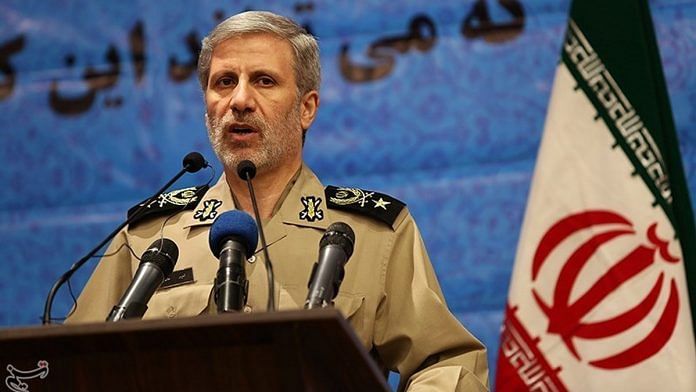For critics of President Donald Trump’s Iran policy, the latest display of bravado by the Islamic Revolutionary Guard Corps’s naval wing is proof that the U.S. “maximum-pressure” sanctions campaign isn’t working. These “dangerous and provocative” maneuvers around U.S. warships, goes the argument, torpedo the administration’s claim of having “restored deterrence” with the Islamic Republic. More broadly, they also demonstrate that the sanctions have failed to restrain the Iranian regime’s dangerous and provocative tendencies.
True, the Trump administration exaggerates the effects of its campaign against the regime. But it also has the unenviable task of proving the negative. To understand the true impact of the sanctions on Tehran’s behavior, imagine how much more dangerous and provocative Iran would have been in their absence.
Without the economic sanctions, Iran’s rulers would by now have had access to tens of billions of dollars in assets and revenues from trade with the world, the economic dividend it was promised, in exchange for limiting its nuclear program, in the 2015 deal with the world powers. Given the regime’s longstanding ambitions for dominance of the Middle East — as well as its paranoia about the Western presence there — much of this windfall would have gone into military spending.
This is no mere supposition. In the first year after the nuclear deal was signed, Iran’s military budget spiked — by anywhere between 30% and 90%. (The regime conceals its true spending.) The budget swelled again the following year, before the sanctions were reinstated, imposing some curbs. The Trump administration’s estimate of a 28% cut is probably exaggerated, as is the Iranian regime’s claim that it has made no cuts at all.
Back to that nuclear-deal dividend: No great leap in imagination is required to guess where the largest share of the bloated defense budget would have gone. The IRGC dominates the country’s military establishment, enjoys vast economic clout and exercises enormous power over its political and clerical elites. It always gets the biggest slice of pie.
Force projection has always been a priority for the Guards, so a goodly sum would have gone to enhancing Iran’s ability to menace its neighbors and threaten international shipping in the Persian Gulf. This is precisely why Iran has been front-loading its limited resources into its missile program; only last week, it claimed to have boosted the range of its naval missiles.
The IRGC would have had to wait until later this year to procure advanced arms from abroad, including fighter aircraft and coastal defense systems; the United Nations embargo on such purchases ends this October. In the meantime, it would have injected cash into its indigenous manufacturing of missiles, military drones and naval mines.
Imagine how much more aggressive those IRGC speedboats could be if they were backed by more lethal firepower. For one thing, Iran’s threats to shut off the Strait of Hormuz, the most important waterway for world oil supplies, would carry far greater credibility. For another, the U.S. and its allies, especially among the Arab states, would have to ratchet up their efforts at deterrence.
That sobering thought should loom in the minds of Europe’s leaders, who have been disgracefully silent on Iran’s reckless provocations — but rarely miss a chance to accuse the U.S. of bringing the Middle East closer to war. Last week’s stunt in the Persian Gulf should remind Germany, France and Britain of the even greater danger Iran will pose if the UN embargo is allowed to expire in October.
This will take some doing. Russia and China are eager to sell the Iranians military hardware. But a strong show of unity and resolve by the Europeans and the U.S., along with the Arab states, might yet deter Moscow and Beijing, and keep Tehran from becoming an even greater danger to the Middle East, and the wider world.- Bloomberg
Also read: Trump is right to block IMF aid for Iran



